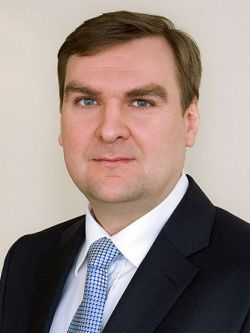The MT Conferences section did not involve the reporting or the editorial staff of The Moscow Times.

Sergey Savseris
Partner
Pepeliaev Group
In 2014, the development of the Russian tax system and law enforcement practice relating to tax administration issues will be influenced by several fundamental factors.
First, according to experts, in 2014 the Russian economy will be exposed to increasing stagnation, which will cause a decline in the revenue of the state budget. This will put the tax authorities under pressure. On the one hand, the tax authorities will have to be more creative during tax audits (for instance, raise claims on new grounds, and find additional arguments to support their conclusions). On the other hand, it cannot be ruled out that additional tax will also be charged in situations which were previously resolved in favor of the companies. Either way, the tax audits to be conducted in 2014 are expected to result in substantial amounts of tax being charged additionally and penalties being imposed on companies. These changes are already being observed.
Second, in 2013 a law was adopted to eliminate the Supreme Commercial ('Arbitration') Court, the highest judicial body in the system of state commercial courts. This is the body that has been shaping judicial practice in relation to tax disputes and considering tax disputes in its capacity of the most senior court. It has been laid down in statute that the powers of the Supreme Commercial Court will be assigned to the Supreme Court, the highest judicial body in the system of the general jurisdiction courts. In this context, tax experts have the most pessimistic expectations in relation to the upcoming changes. The ground for such sentiment is the fact that the system of general jurisdiction courts in Russia is lagging significantly behind the system of state commercial courts: the legal position of the Supreme Court is more conservative. In addition, practice has evolved in such a way that the general jurisdiction courts are more dependent on the executive power.
For instance, tax experts fear that the previous practice of tax disputes formed by the Supreme Commercial Court will become impracticable, and that the "reformed" courts will consider the tax disputes in a formal manner in many cases.
These changes are potentially relevant because judicial power has traditionally played a very important role in shaping Russian tax practice. When courts consider tax disputes, they form approaches to implementing the provisions of tax law, fill the gaps in tax law, and develop and implement judicial doctrines to prevent tax evasion.
Considering these two factors, we recommend conducting an "unscheduled" audit to revise the tax policy of companies working in Russia from the most conservative angle. This will help companies to prepare for eventual tax audits and in most cases to mitigate the adverse consequences of these.
Two issues will be especially prone to tax risks in 2014: transfer prices and thin capitalization.
First, upcoming audits should be mentioned.
In 2014, the companies that have reported in their financial statements transfer prices based on the new transfer pricing provisions (effective from 2012) will be audited by the tax authorities. The audits will be conducted in the context of the Federal Tax Service checking these reports and raising questions which many companies will have to answer. Such questions may be connected, primarily, with the fact that similar companies active in the same area have implemented different approaches to transfer pricing. We assume that the tax authorities will choose 1 or 2 companies in each industry and charge, "on an experimental basis", extra tax on them pursuant to the new transfer pricing provisions. The Federal Tax Service will also make considerable efforts to prevent these extra charges from being invalidated by court, since the practice that evolves will serve as a basis for subsequent tax disputes to be considered.
Moreover, the tax authorities will continue to identify overdue debentures of companies, which fall within the scope of the thin capitalization rules. In many cases, the additional tax charged under the thin capitalisation rules is substantial for companies. The judicial practice on the matter is currently unfolding in the tax authorities' favor, even if their conclusions are at odds with the generally accepted approaches of the OECD. The trend for the tax authorities and courts is to treat thin capitalisation rules from a formal perspective which does not take into account the "arm's length" principle. Tax specialists are making considerable efforts to change the judicial practice that is being formed.
Despite the negative forecast for the year 2014, which may be a difficult period for companies, in most cases companies will be able to guard against or mitigate adverse tax implications by engaging highly skilled Russian tax law professionals as well as attorneys specialising in tax disputes.
The MT Conferences section did not involve the reporting or the editorial staff of The Moscow Times.
A Message from The Moscow Times:
Dear readers,
We are facing unprecedented challenges. Russia's Prosecutor General's Office has designated The Moscow Times as an "undesirable" organization, criminalizing our work and putting our staff at risk of prosecution. This follows our earlier unjust labeling as a "foreign agent."
These actions are direct attempts to silence independent journalism in Russia. The authorities claim our work "discredits the decisions of the Russian leadership." We see things differently: we strive to provide accurate, unbiased reporting on Russia.
We, the journalists of The Moscow Times, refuse to be silenced. But to continue our work, we need your help.
Your support, no matter how small, makes a world of difference. If you can, please support us monthly starting from just $2. It's quick to set up, and every contribution makes a significant impact.
By supporting The Moscow Times, you're defending open, independent journalism in the face of repression. Thank you for standing with us.
Remind me later.





